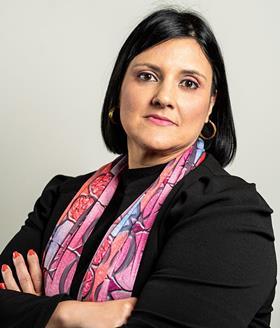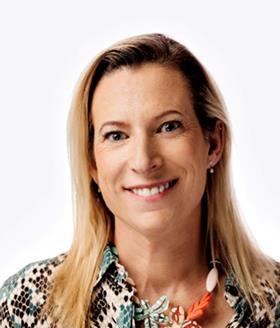The European Union and U.K. have teed up a flood of new regulations that will complicate an increasingly tricky business environment.
The role of compliance officers is rapidly changing. Once considered the boring parents who said “no” anytime someone asked, compliance officers are now finding themselves at the heart of business, untangling thorny questions about regulatory process, rules, and ethics.
That’s the backdrop ahead of Compliance Week Europe, a two-day conference in Amsterdam starting Oct. 15, where Compliance Week and its sister organization, the International Compliance Association, will be bringing together more than 200 GRC professionals across tech, banking, media, manufacturing, and healthcare to help discuss how they’re making sense of a constantly changing business environment.
“You want to reach people in as many ways as you can, through newsletters, face-to-face training, and in-person dealings,” said Imogen Haddon, chief compliance officer at News Corp. who is based in London, and will be joining Compliance Week Europe in Amsterdam on Oct. 16. Time and again, she said that messaging is as important as understanding the rules themselves, because compliance professionals need to inspire their company culture to navigate and anticipate prickly issues. “You’re constantly repainting the proverbial bridge, constantly trying to engage people with fresh messaging on important issues,” she said.
Waves of regulation
Haddon and her team of approximately a dozen compliance officers have plenty to stay on top of. European governments have passed a series of rules on a wide range of issues, including anti-money laundering (AML) legislation, new climate change rules and increased pressure for businesses to publish sustainability reports. The EU created a new AML regulator to stem the seeming endless waves of fraud in banking. Meanwhile, the U.K. and Germany have enacted new supply chain requirements. And we haven’t even gotten to new data privacy requirements of EU’s General Data Protection Regulation (GDPR), requiring companies to once again reshape how they handle our data.
It’s a full-time job just to keep on top of the news, let alone actually following the regulations it’s tied to.

One panel at CW Europe will focus on the EU’s AML rules, looking ahead to what changes companies need to make now and in the future. Charmaine Calleja, head of financial crime compliance/money laundering reporting officer (MLRO) at Lidion Bank in Malta, said banks should already be trying to understand gaps “old and new.” This means that they will have to understand how their programs must change and adapt to the new requirements.
“All EU banks will have to make sure they are up and running with the new package,” she said.
The panel will touch on whether countries will implement the package in the same way, and whether true harmonization in the fight against financial crime can be reached. The panel will also address what the AML package means for compliance officers, and what compliance teams should be training for.
Ethics a constant conversation
CW Europe will spend a lot of time on the details of compliance, but we also intend to discuss how company cultures are created and changed to meet increasing ethics rules and expectations. Ultimately, our community will be charting a path for what it means to be compliance officer today and tomorrow.
Panelists have told us that compliance professionals are increasingly expected to be specialists in many different fields, understanding new legal requirements and new technologies in key ways necessary to follow government mandates.
“You want to reach people in as many ways as you can, through newsletters, face-to-face training, and in-person dealings. You’re constantly repainting the proverbial bridge, constantly trying to engage people with fresh messaging on important issues.”
– Imogen Haddon, CCO, News Corp.

Haddon said that expertise is not just key to understanding rules, but also distilling complex regulations into understandable bites for their colleagues, “in their language.”
Compliance teams should also be constantly re-evaluating what they’re saying and why, she added. “You want to ask yourself, ‘Is what I think is happening, actually happening?’”
Charting a course ahead
Speakers and attendees at CW Europe each know that compliance goes well beyond knowing what the regulations are and how they affect your firm. Good compliance programs work within companies to help businesses meet mandates, as well as prepare them to avoid regulatory and ethical pitfalls in the future. Great programs infuse their companies with a culture of compliance that starts at the top and builds out from the middle, so that everyone knows the rules and is encouraged to report when the system breaks down.
That turns compliance officers into the role of internal PR and HR consultants as well. Good compliance cultures only succeed when they have support from senior leadership, said Juliana Delbuque Guerra, global compliance manager at tea and coffee supplier James Finlay. She will serve on a panel at CW Europe entitled, “Telling the story of compliance culture: Driving a compliance culture from board to front-line.”
Board members and members of the C-Suite have to understand why having a good compliance culture is so important to their business’ bottom line, Delbuque Guerra said, and then be able to relate that story to managers and employees as well as the compliance teams do. Getting everyone on board isn’t always quick or easy, she added, but it can begin with a small presentation to the board and senior leadership on the importance of compliance.

“They’ve got to understand what the risks are if you don’t have an effective compliance program, the risks to the company,” she said.
Once senior leadership are on board, the next step is messaging. Using regular internal communications and a well-crafted code of conduct, compliance can embed into the processes that propel the business forward. Occasional workshops and company town halls, where both senior leadership and compliance professionals are on hand to answer questions from employees, can be used to reinforce the message, she said.
Effective compliance programs can also spot emerging risks before they become big problems, she said. “Sometimes you can see a problem coming based on the types of questions you are receiving in your employee helpline,” she said.
Good teams are building processes to ensure they’re constantly seeking out ways to stay ahead of what employees need. That way, they can turn from being seen as the parents always saying “no,” to a team coach dispensing valuable advice and counsel.




















No comments yet